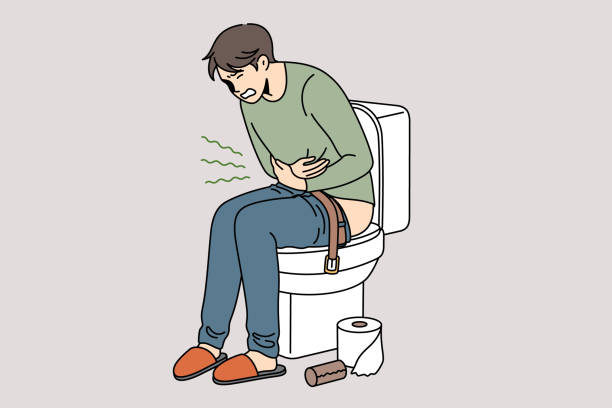Hemorrhoids, also known as piles, are swollen veins located around the rectum or inside the anus. They can be quite uncomfortable and may cause symptoms such as itching, pain, and bleeding during bowel movements.
There are two main types of hemorrhoids:
- Internal Hemorrhoids: These develop inside the rectum and are usually painless. However, they may cause bleeding during bowel movements. Internal hemorrhoids can protrude through the anus, causing discomfort or pain.
- External Hemorrhoids: These occur under the skin around the anus. They can be felt as lumps or bulges and may cause pain, itching, or irritation.
Hemorrhoids are quite common and can occur due to various factors, including:
- Straining during bowel movements: This can put pressure on the veins in the rectal area, leading to hemorrhoids.
- Chronic constipation or diarrhea: Both conditions can contribute to the development of hemorrhoids.
- Sitting for long periods: Prolonged sitting, especially on hard surfaces, can increase pressure on the rectal veins.
- Obesity: Being overweight can put additional pressure on the rectal area, increasing the risk of hemorrhoids.
- Pregnancy: Hormonal changes and the pressure of the growing uterus can cause hemorrhoids in pregnant women.
- Aging: The risk of hemorrhoids increases with age as the tissues supporting the veins in the rectal area weaken.
Symptoms of hemorrhoids can vary depending on the type and severity but may include:
- Bleeding during bowel movements, typically seen as bright red blood on toilet paper or in the toilet bowl.
- Itching or irritation in the anal region.
- Pain or discomfort, especially during bowel movements.
- Swelling or a lump near the anus.
Treatment for hemorrhoids usually starts with lifestyle modifications and over-the-counter remedies. These may include:
- Increased fiber intake: Eating more fiber-rich foods or taking fiber supplements can help soften stools and reduce straining during bowel movements.
- Hydration: Drinking plenty of water can also help soften stools and prevent constipation.
- Topical treatments: Over-the-counter creams, ointments, or suppositories may help relieve symptoms such as itching and pain.
- Warm baths: Soaking in a warm bath for 10 to 15 minutes several times a day can help alleviate discomfort.
If conservative measures fail to provide relief, medical intervention may be necessary. Medical treatments for hemorrhoids include:
- Sclerotherapy: A procedure in which a chemical solution is injected into the hemorrhoid to shrink it.
- Rubber band ligation: A procedure in which a rubber band is placed around the base of the hemorrhoid to cut off its blood supply, causing it to shrink and fall off.
- Hemorrhoidectomy: Surgical removal of hemorrhoids, usually reserved for severe cases that do not respond to other treatments.
Preventing hemorrhoids involves maintaining good bowel habits and lifestyle practices, including:
- Eating a high-fiber diet rich in fruits, vegetables, and whole grains.
- Drinking plenty of water to stay hydrated.
- Avoiding prolonged sitting or standing.
- Exercising regularly to promote healthy bowel function.
- Avoiding straining during bowel movements.

